
Event Review: Seed
– Cultivating Community
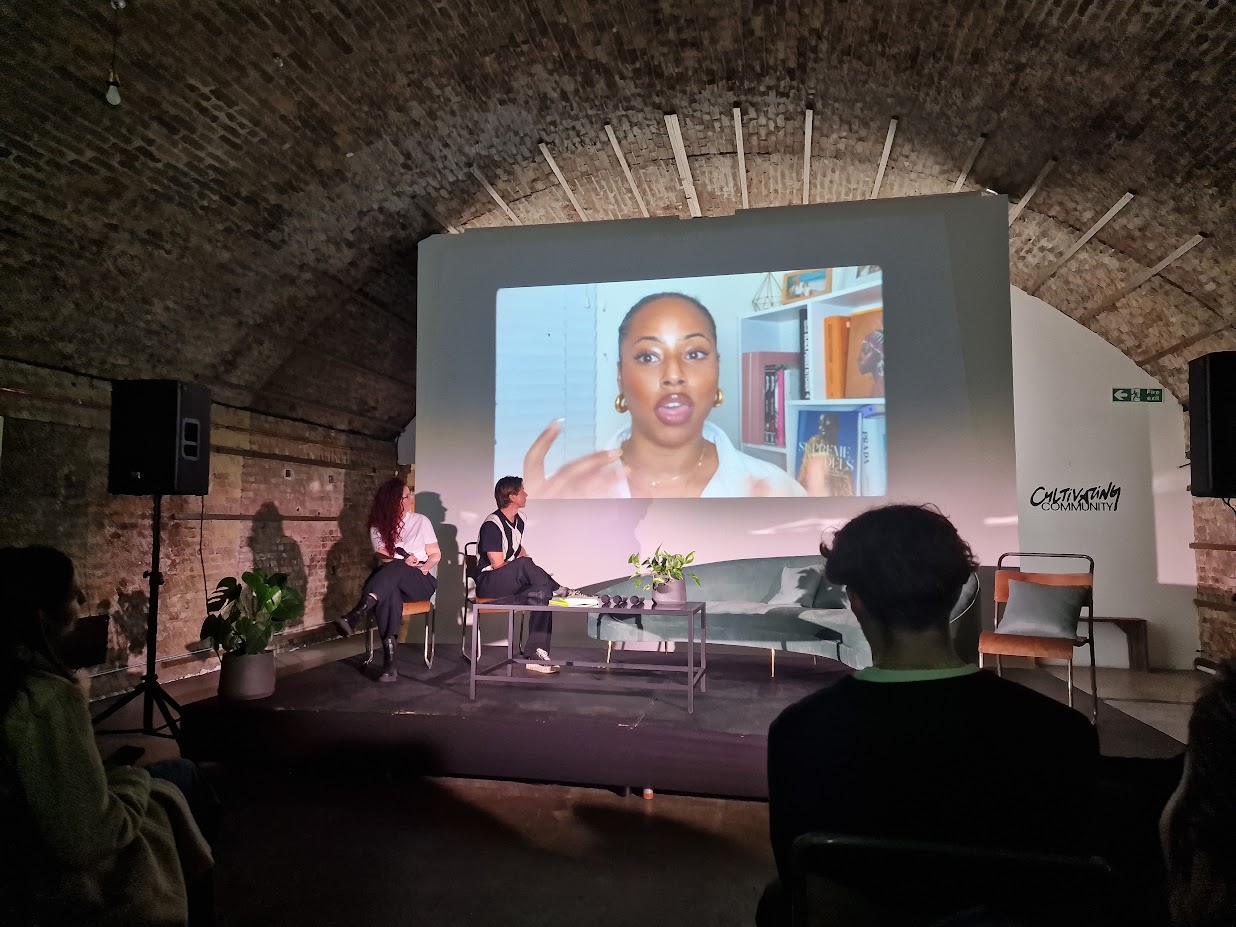
Published by: Field Marketing
As a 50+ yo white male, writing about youth communities is a potentially risky business. Some of these communities have risen up in reaction to the critical eye of some men from my era and background.
So, having been invited to the event, what can I contribute to the discourse?
Fortunately, I have not become jaded by life, and I think it’s important to state that. I have seen a few generations growing up behind me and have seen each one in turn hailed as the best and the worst future imaginable and know that things don’t ever work out to these extremes.
Specifically, I know that youth can be over-hyped, and I also know a bit about what they are up against. I’m also a positive person who can see the challenges that lie ahead of the young but believes they can deal with those challenges. I hope and expect them to surpass us.
It is worth noting that I am something of a youth evangelist. I’m a fundraiser for disadvantaged youth and I am about the launch my own charity to provide mentoring and support services for young people aspiring to be a part of the brand events industry. I have a 2000-mile run scheduled this summer both in support of and supported by the young people who are assisted by Brathay Trust. I’m working directly with their support networks in Bradford and Barrow.
Preparing for this I have made my own study of the young people, volunteering with various charities. I’m a parent of some savvy Gen Zs too.
I attended this event with an open mind. I was confident, at the very least, that some of the young people there would be enlightening.
I went to Cultivating Community, very attuned to the potential of Gen Z, and also aware that as a marketing prospect the generation can be over-sold. I was wary that I might have been invited alongside brands to be told how valuable this generation can be for a brand and why I would be a fool not to try and sell them stuff straight away.
This wasn’t the case. Thankfully I was able to pack this wariness away from the start. The focus of this event was all about relationship building.

After a brief introduction we learned how specialist youth agency Seed came up with their take on how to help illustrate the potential. For this project they decided against scale market researching youth communities but instead chose to engage with a small selection of them in depth. They did this by filming and documenting their, lives, energy, drive, output, connections and motivations.
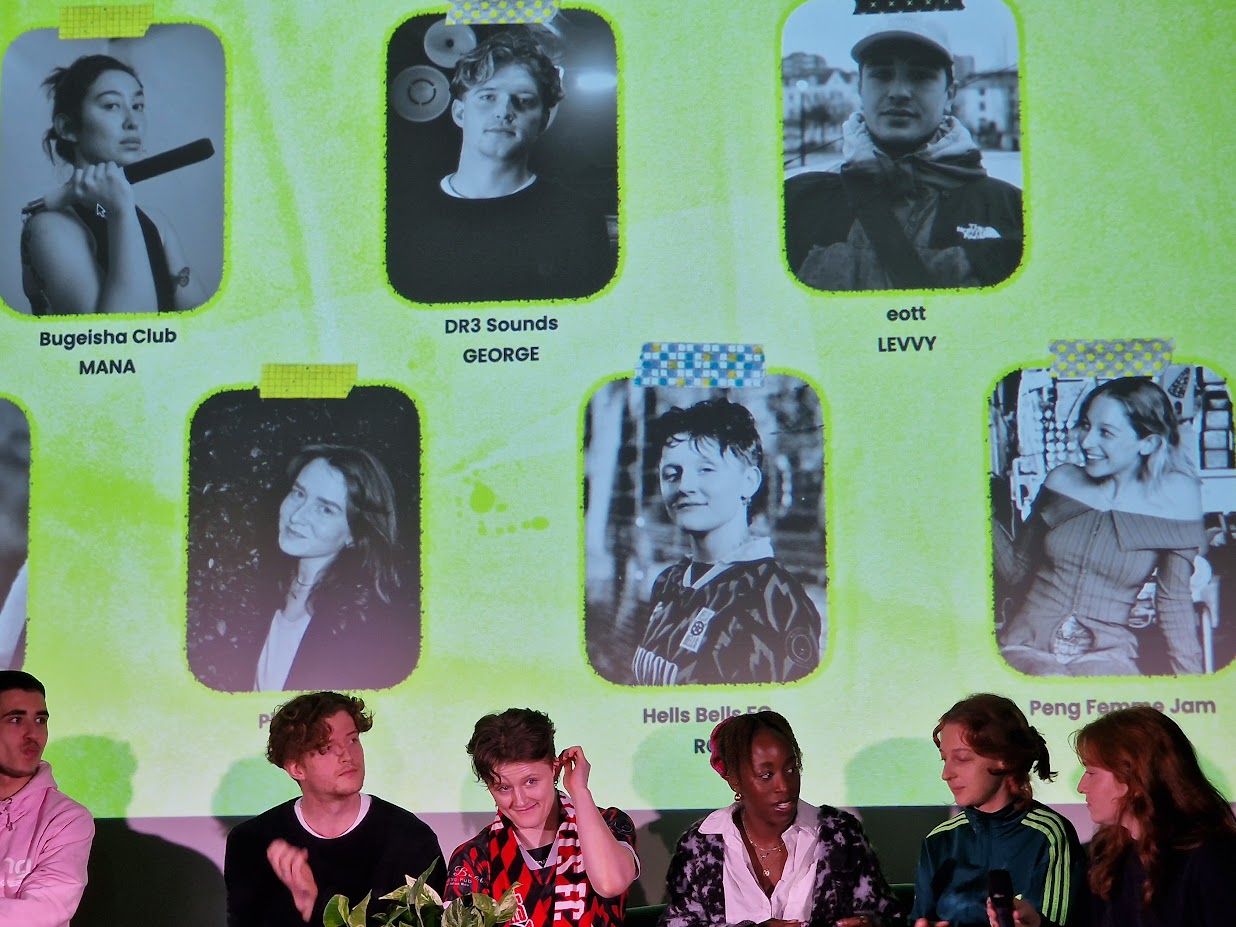
These were the communities.
Black Girl Gamers: A multi-platform global community for Black women gamers
Bugeisha Club: Martial arts warrior women preparing for the apocalypse
DR3 Sounds: Promoters and club night championing rising youth DJ talent
EOTT: A mental health project changing the conversation around stigma and services
Hellaa Melanin: safe space that celebrates blackness
Hells Bells FC: A radically trans inclusive grassroots football team
Peng Femme Jam: A monthly jam session for women, queer and gender non-conforming musicians
Pilot Magazine: A digest dedicated to all things creative, experimental, and authentic
After this intro, there was a screening of the film.
After this, Seed sat back and let the young people tell us about themselves. I was immediately impressed. Writers, footballers, gamers, DJs, musicians, non-conformists, martial artists, innovative event hosts, health supporters – they all had unique stories, all told with high a level of fluency, articulacy and clarity. It left you in no doubt of the talent assembled on the stage. Here was a deeply thought-provoking Gen Z, confident in their talents and feeling safe and welcomed, through this process, to express themselves.
These communities were not social influencers, or at least not what I think of as influencers. I have an on-off relationship with social influencers. I don’t really remember what Gen social influencers popped up in, but I often feel that the most ‘followed’ influencers are rarely influential in a meaningful way. By contrast these Gen Z young community leaders are more than influential, they are helping to define their culture. They are not happy faces that you can rent for the day. They have invested too much time and trouble to get where they are to see that unravel that with an ill thought piece of bandwagon marketing.
On the stage they quickly established and reaffirmed this – and you can also see in the screen-displayed quotes shown in my photographs:

The spokesperson chosen for Hells Bells FC, said, “Brands need to build a better understanding of the landscape. Ask questions, use online resources before we communities have to teach you about it – connecting with people who see why that relationship is valuable, having common ground, rather than having to educate makes that relationship more important.”

These inventive young people certainly have followers, but they are not the banal ‘like’ brigade. They offer fully engaged connections. They have built their community through consistent leadership. To a certain extent I saw in these young people different versions of myself when once a twenty something, when back in the 1990s I had set out make a publishing collective that would allow talented writers in marketing and travel to stay open and honest without becoming compromised by overbearing ad sales. We believed our opinions and our ability mattered and if we stayed true to that the subscriptions would come.
It was great to see such forthright determination and conviction on the stage.
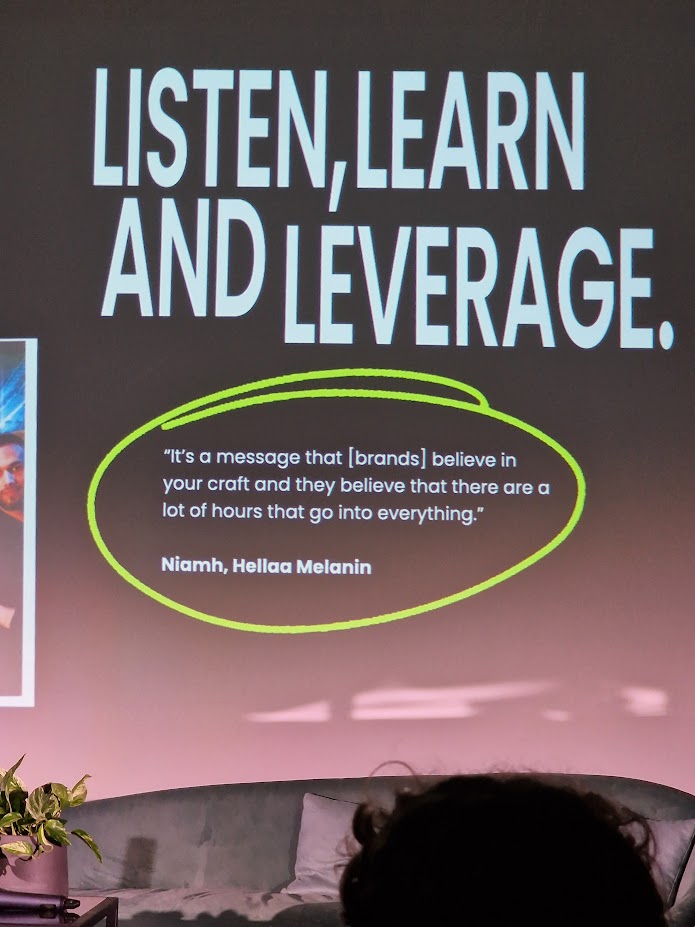
After hearing from these community leaders, we heard from the brands that are reaching out to Gen Z. Spotify’s Lucy Edwards, Depop’s Chloe Young and JD Sports Fashion’s Frankie Matthews (Right to left in the puicture below) took the stage to discuss all things community.
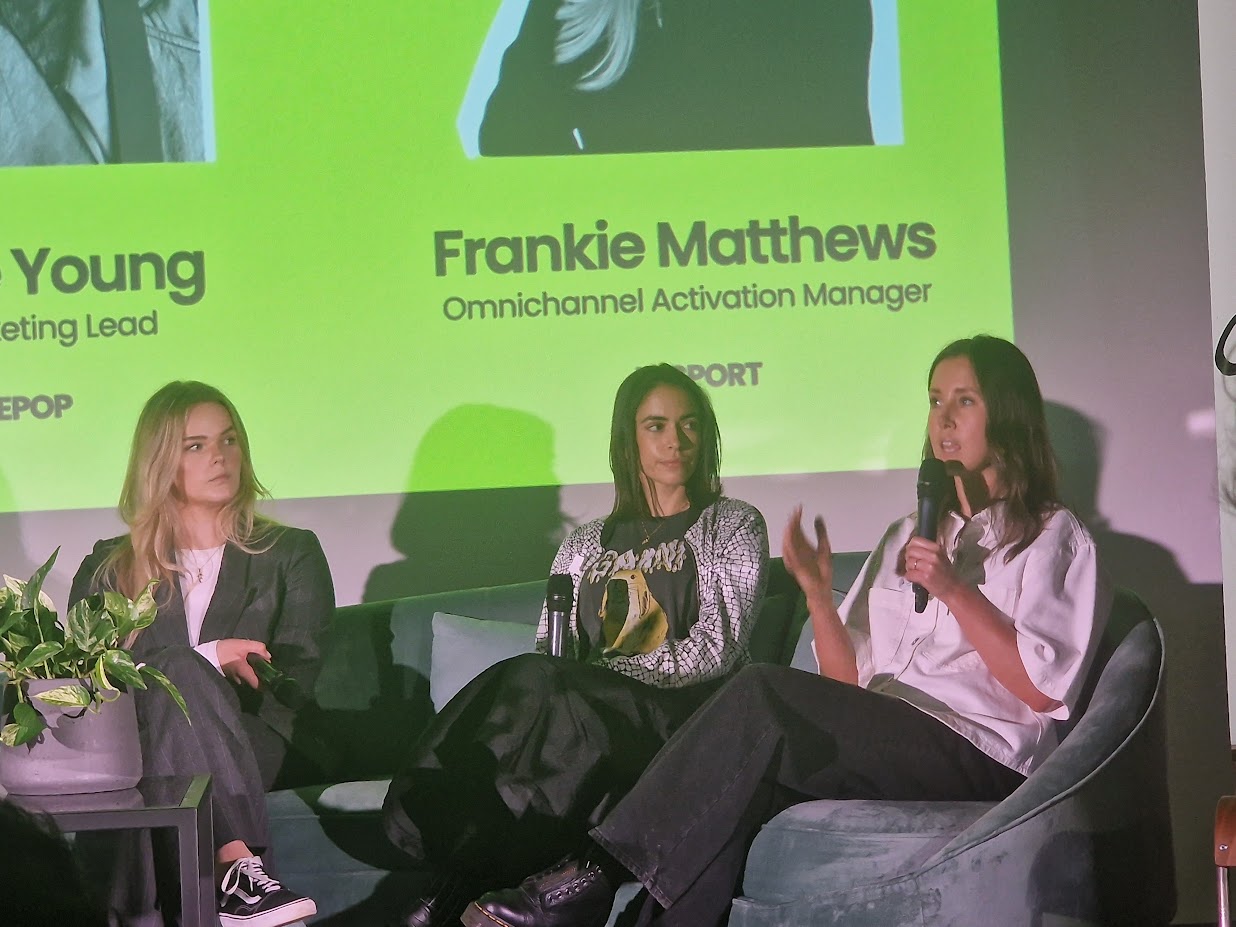
These were great brand choices to call upon. They’re all brands that would be doing something wrong if they were not actively exchanging views with Gen Z.
And they all shared a common thread. They all supported the community leaders’ wish for dialogue and conversation. These pointers came up:
- Brands are certainly desired as partners by these communities, but as you might expect you will want to be aligned with the culture and principles of that community.
- The relationship is at its best when seen as an exchange.
- Typically, you are aligning your brand with potential.
If I had been a brand seeking greater uptake and allegiance with Gen Z then these communities look an exciting way to go. I would do so openly and whole-heartedly and with the safety net of a ‘what’s the worst that can happen?’ attitude.
Take DR3 Sounds for instance. DR3 talked to us about how far they have come as DJs and Club Night organisers. For them the dream would be the helping hand that gets them a festival stage to curate. Taking my ‘what’s the worst that can happen?’ outlook for a brand supporting DR3 – you might help them get a step closer the realisation of the next part of the dream. You would likely find that insightful and enjoyable. So, the worst outcome is going to be a pretty good one.
The best that can happen though is something else entirely, as the community you have backed may use your backing as the final piece of the plan that consequently sees them skyrocket. You and your brand would then get to go to previously unimagined places with them.
Given the range of potential outcomes it would certainly look sensible to take agency direction and support.
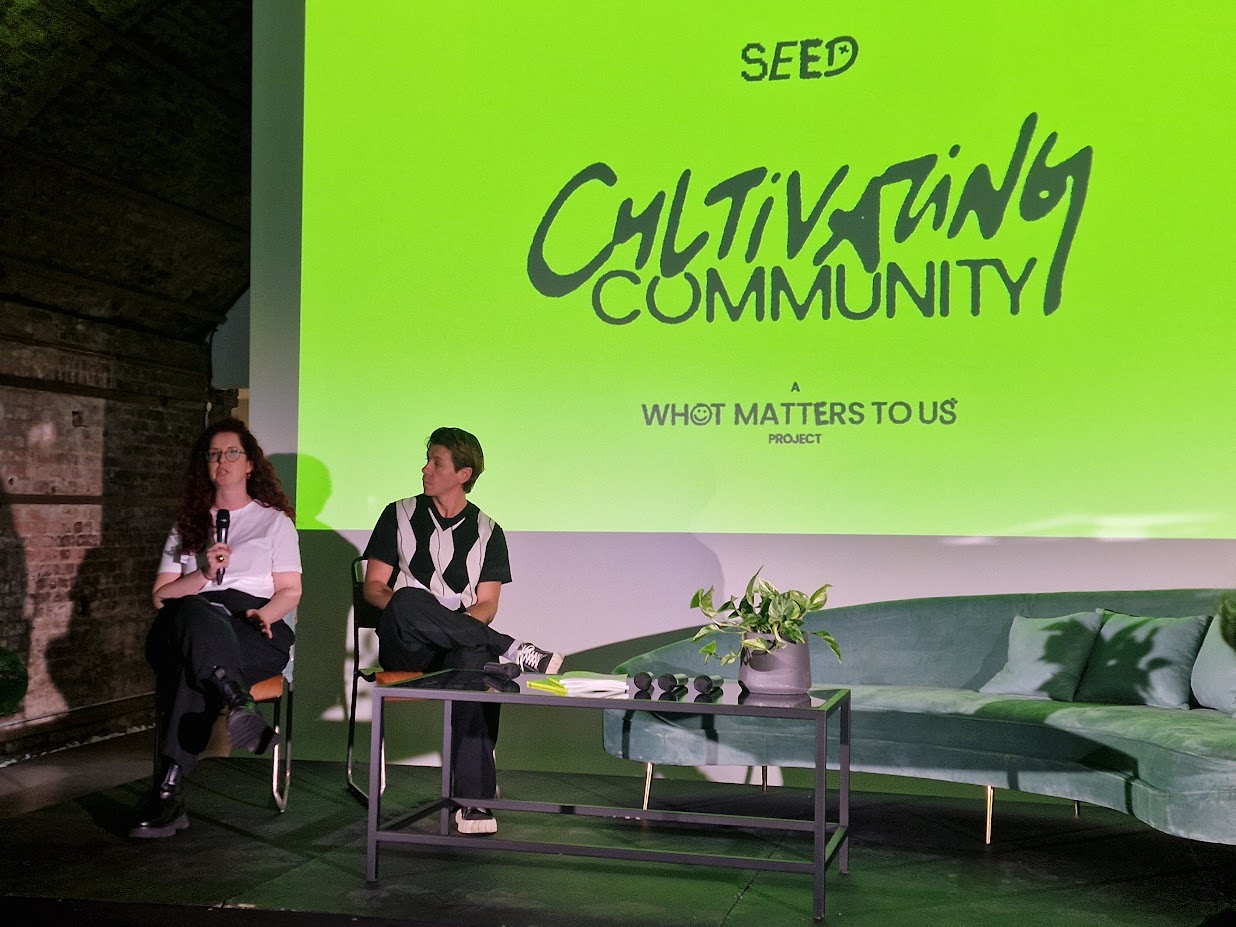
At this point perhaps I should add that I was impressed with Seed. Being a specialist agency it was clear that their commitment to the demographic is delivered with honed expertise. The communities that they selected for this project were all interesting, and I found them authentic and meaningful.
I’m sure that Seed will be helping some brands to engage with real and developing cultural storylines. Doing this will surely increase the experience credentials of the brands that choose to follow this path.
One of Seed’s pointers on the day stated, “Gen Z’s bullshit radar is pretty strong.” That for me was the on of the big positive takeouts of this thoroughly engaging event, something I know to ring true from my own work and observations. Calling bullshit when you see it is a vital skill in a world where online communications enable honesty and deceit in equal measure. If your brand is honest and authentic, and wants to strengthen that positioning, then this route to market may well be the way to go.